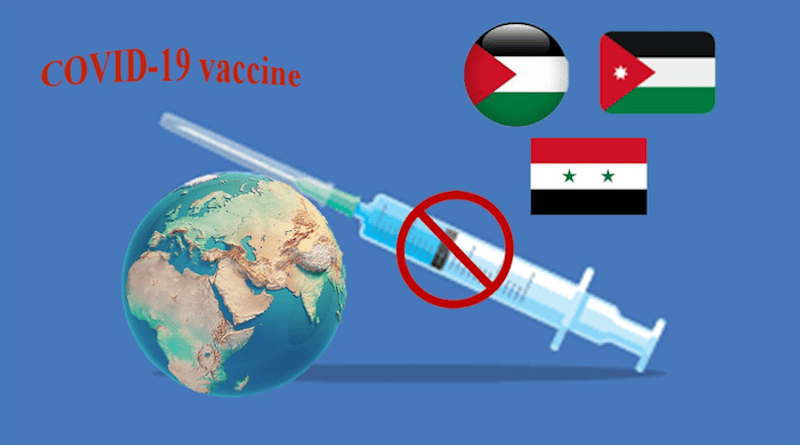Understanding COVID-19 Vaccine Hesitancy In Jordan, The West Bank, And Syria
Analysis of a December 2020 survey conducted in Jordan, the West Bank, and Syria finds that about two-thirds of participants were unwilling or hesitant to get vaccinated against COVID-19. Sima Zein of the American University of Madaba, Jordan, and colleagues present these findings in the open-access journal PLOS Neglected Tropical Diseases.
The World Health Organization has identified refusal and hesitancy towards vaccination as a major threat to global health. Indeed, hesitancy or unwillingness to receive a COVID-19 vaccine is a significant challenge to managing the ongoing pandemic. A better understanding of attitudes towards COVID-19 vaccines could aid efforts to address this challenge.
In the new study, Zein and colleagues conducted a survey to analyze COVID-19 vaccine attitudes among 8,619 adults living in Jordan, the West Bank, and Syria—regions that share borders, culture, traditions, and beliefs. The survey asked participants whether they intended to get vaccinated, and if not, invited them to clarify why. The study was conducted in December 2020, when COVID-19 cases and deaths were high in all three regions.
Statistical analysis of the survey responses found that 32.2 % of the participants intended to get vaccinated, 41.6 percent did not, and 26.2 percent were hesitant. Most of those who were unwilling or hesitant to get vaccinated were primarily concerned about the rigor of the U.S. Food and Drug Administration’s vaccine-evaluation process, as well as potential long-term health risks.
Participants were more likely to be willing to get vaccinated if they were female, aged 18 to 35, Syrian, Jordanian, from a large family, had recently received a flu vaccine, or had a high school diploma or less.
The authors note they were surprised that participants with higher levels of education were less willing to be vaccinated. They also note that attitudes towards vaccination could have been affected by negative effects on the health care systems of Syria and Palestine caused by political and economic instability.
These findings suggest that targeted efforts may be effective in increasing COVID-19 vaccine acceptance in the three regions. Further research could help clarify which types of efforts might be most effective.
Zein adds, “The predictors and factors behind the negative attitudes towards COVID-19 vaccines in 3 countries in the Middle East, Palestine, Jordan and Syria.”

